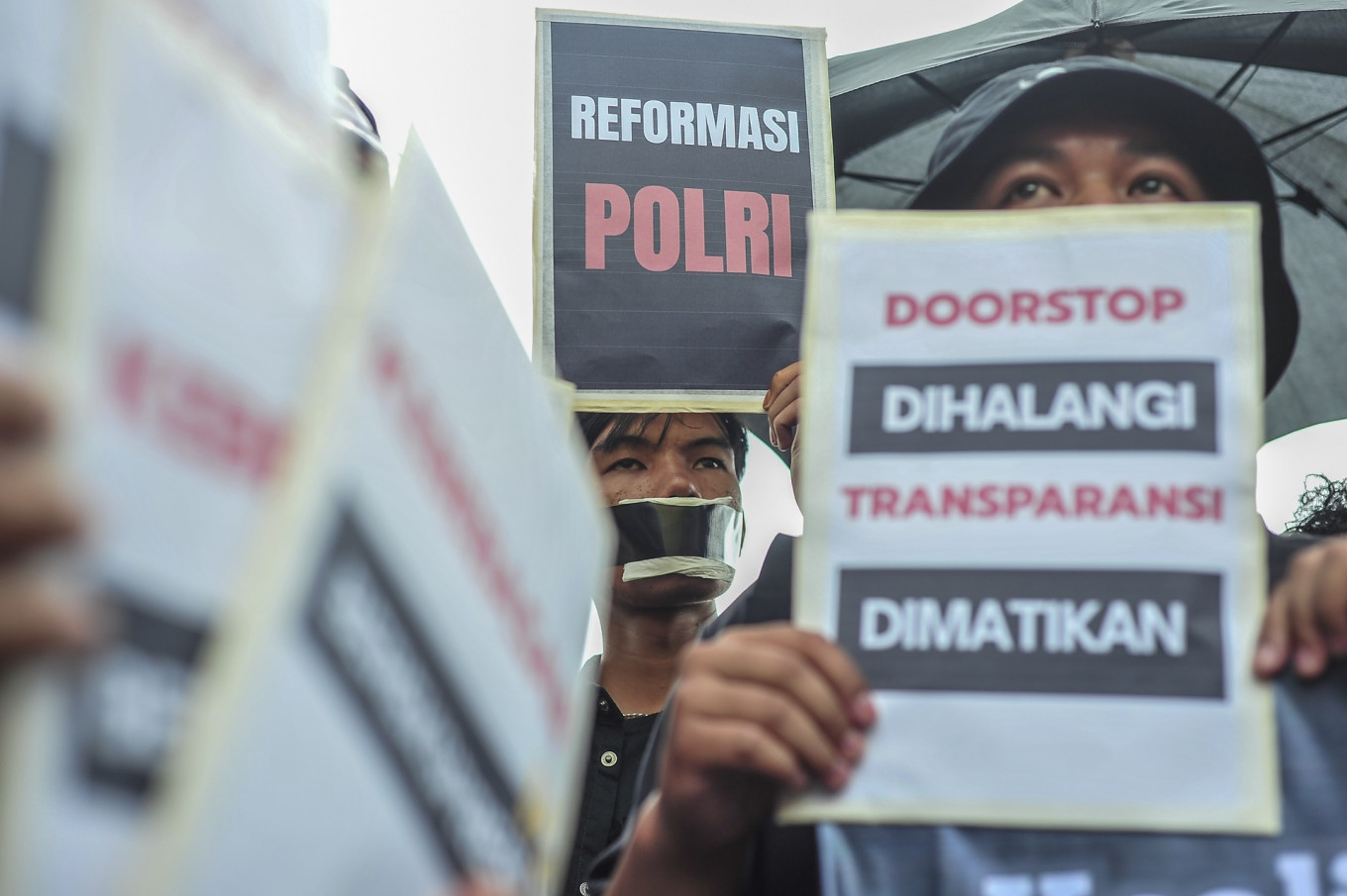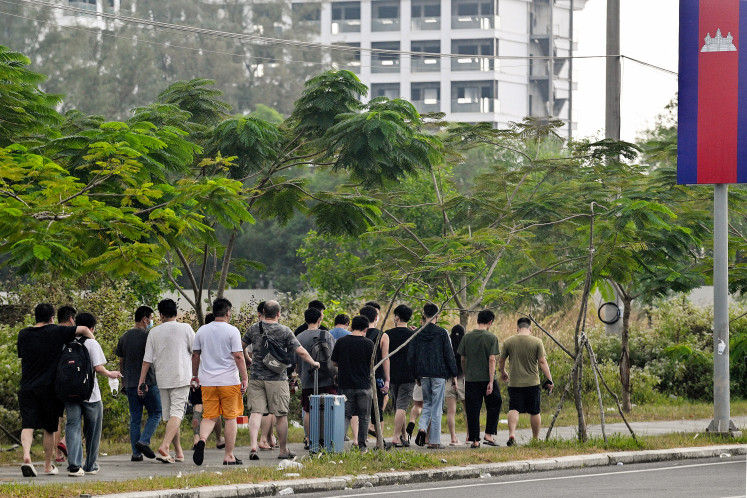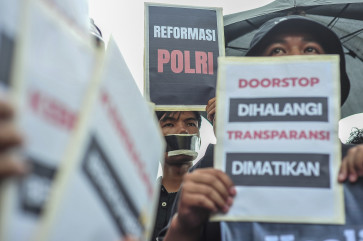Popular Reads
Top Results
Can't find what you're looking for?
View all search resultsPopular Reads
Top Results
Can't find what you're looking for?
View all search resultsReclaiming democracy, digital journalism from the clickbait crisis
Digital journalism practices today more than just annoy readers, they corrode democracy by replacing nuanced, fact-based reporting with emotionally charged content that leaves citizens less informed and more polarized.
Change text size
Gift Premium Articles
to Anyone
A
reader opens a leading news portal in Indonesia, intending to understand the government's latest economic policy. Instead of information, he is met with a digital assault: An auto-playing video ad, a pop-up banner obscuring the screen and a sticky ad that follows them down the page. The article itself is fractured into multiple pages, not for narrative clarity, but to maximize ad impressions.
This frustrating experience, now a daily reality for millions, is more than just an annoyance, it is a symptom of a deep sickness powered by programmatic advertising, an automated system that, while designed for efficiency, has ironically become a grave threat to journalism's role as a pillar of democracy.
Programmatic advertising offers a financial lifeline to a struggling press, but at a tremendous cost: reader experience, newsroom integrity and ultimately, health of our democracy. Without adaptive regulation, we are allowing commercial algorithms to dictate the future of journalism, transforming the fourth estate into a noisy, soulless digital billboard where public enlightenment is secondary to commercial gain.
Dominance of this model has created a destructive cycle. The digital media business is now wholly dependent on quantitative metrics: clicks, page views and ad impressions. This economic logic forces newsrooms to shift their priority from serving the public interest to feeding the algorithm. The consequences are twofold.
First is massive degradation of the user experience. Media outlets, in a desperate bid to maximize ad inventory, clutter their pages with intrusive formats. Research from the Nielsen Norman Group confirms that pop-ups and auto-playing videos are among the most hated advertising techniques globally. This frustration has driven 35.9 percent of Indonesian internet users to install ad-blockers, a silent referendum against a model that sacrifices reader comfort for monetization.
Second, and more fatal, is the erosion of journalistic quality. To chase the traffic volumes needed for ad revenue, media outlets adopt shallow content strategies. Costly investigative journalism is replaced by rewritten press releases and summaries of viral social media content. Provocative clickbait headlines become the norm, promising sensationalism but delivering little substance.
This “race to the bottom” does more than just annoy readers, it corrodes democracy by replacing nuanced, fact-based reporting with emotionally charged content that leaves citizens less informed and more polarized. It forces journalists to become rapid content producers rather than in-depth reporters, creating immense pressure and devaluing their profession.



















